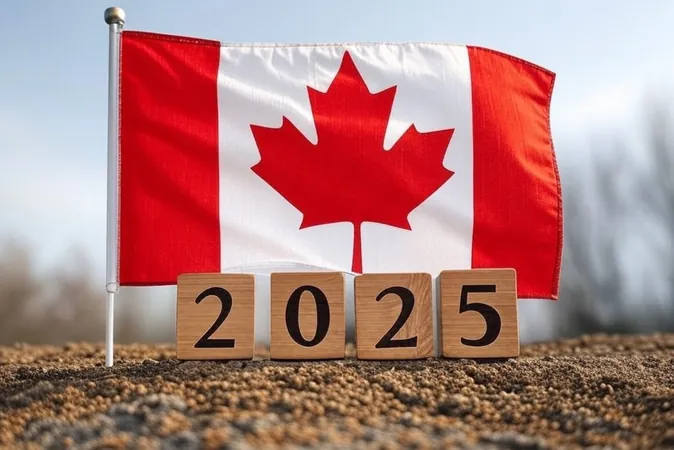
Essential Changes for International Students in Canada: What You Need to Know for 2025
2024-12-30
Author: Emma
Are You Ready for the Significant Changes Coming in 2025?
As the New Year approaches, it's crucial for current and aspiring international students in Canada to be aware of the transformational updates to the International Student Program (ISP) that will be rolled out in 2025. Canada continues to stand as a premier destination for international education, but the regulatory landscape has shifted significantly in 2024, aiming to strengthen program integrity, ensure fairness, and streamline student processes.
What Are the Six Major Changes? Let’s Dive Into the Details!
1. **Revised PGWP Eligibility Criteria** As of November 1, 2024, significant changes will be implemented regarding Post-Graduation Work Permit (PGWP) eligibility. Depending on when a student's study permit application was submitted and their specific program of study, different language requirements will apply: - **University Graduates** (Bachelor's, Master’s, Doctoral): Need to achieve a minimum Canadian Language Benchmark (CLB) of 7. - **Other University Graduates:** Must also meet CLB 7 but must be in a high-demand field. - **College Graduates:** Require a minimum CLB of 5 and must be from programs in sectors facing labor shortages such as healthcare, STEM, and trades.
2. **Changes to Off-Campus Work Hours** From November 2024, international students will now be allowed to work a maximum of **24 hours per week** during terms. This increased flexibility aims to help students maintain a healthy balance between their academic responsibilities and work commitments, thereby facilitating a more enriching student experience.
3. **Abolition of Flagpoling for PGWP Applications** Since June 21, 2024, students can no longer apply for their PGWP at Canadian borders—a process known as "flagpoling." This change intends to enhance efficiency and improve the efficiency of immigration processes, requiring students to manage PGWP applications online from within the country.
4. **Discontinuation of the Student Direct Stream (SDS)** In November 2024, the IRCC opted to end the SDS and the Nigeria Student Express (NSE) visa programs. The SDS aimed at expediting permit processes for students from specific countries, but concerns about fairness warranted this notable end. This move is intended to provide a more equitable approach to Canada’s immigration system.
5. **Revised Criteria for Spousal Open Work Permits** Spouses of international students are now only eligible for open work permits if the student is enrolled in specific professional degree programs, such as Medicine, Nursing, and Engineering. This policy revision aligns with the country’s focus on attracting highly skilled individuals to bolster the economy.
6. **Changes to Study Permit Applications at Ports of Entry** Starting December 23, 2024, students will no longer be able to apply for study permits upon arrival at Canadian ports. All study permit applications must be processed online. This overhaul aims to better manage applications and simplify the overall system for both applicants and officials.
Key Implications for International Students
- **Emphasis on Education Over Work:** The reduced off-campus work hours will encourage international students to focus more on their studies while still engaging in part-time work. - **Alignment with Labor Market Needs:** The revised PGWP eligibility criteria cater to sectors experiencing labor shortages, which increases the likelihood of students securing employment post-graduation. - **Promoting Fairness in Applications:** With the termination of SDS and a shift to online applications, there will be greater transparency in the immigration process.









 Brasil (PT)
Brasil (PT)
 Canada (EN)
Canada (EN)
 Chile (ES)
Chile (ES)
 España (ES)
España (ES)
 France (FR)
France (FR)
 Hong Kong (EN)
Hong Kong (EN)
 Italia (IT)
Italia (IT)
 日本 (JA)
日本 (JA)
 Magyarország (HU)
Magyarország (HU)
 Norge (NO)
Norge (NO)
 Polska (PL)
Polska (PL)
 Schweiz (DE)
Schweiz (DE)
 Singapore (EN)
Singapore (EN)
 Sverige (SV)
Sverige (SV)
 Suomi (FI)
Suomi (FI)
 Türkiye (TR)
Türkiye (TR)